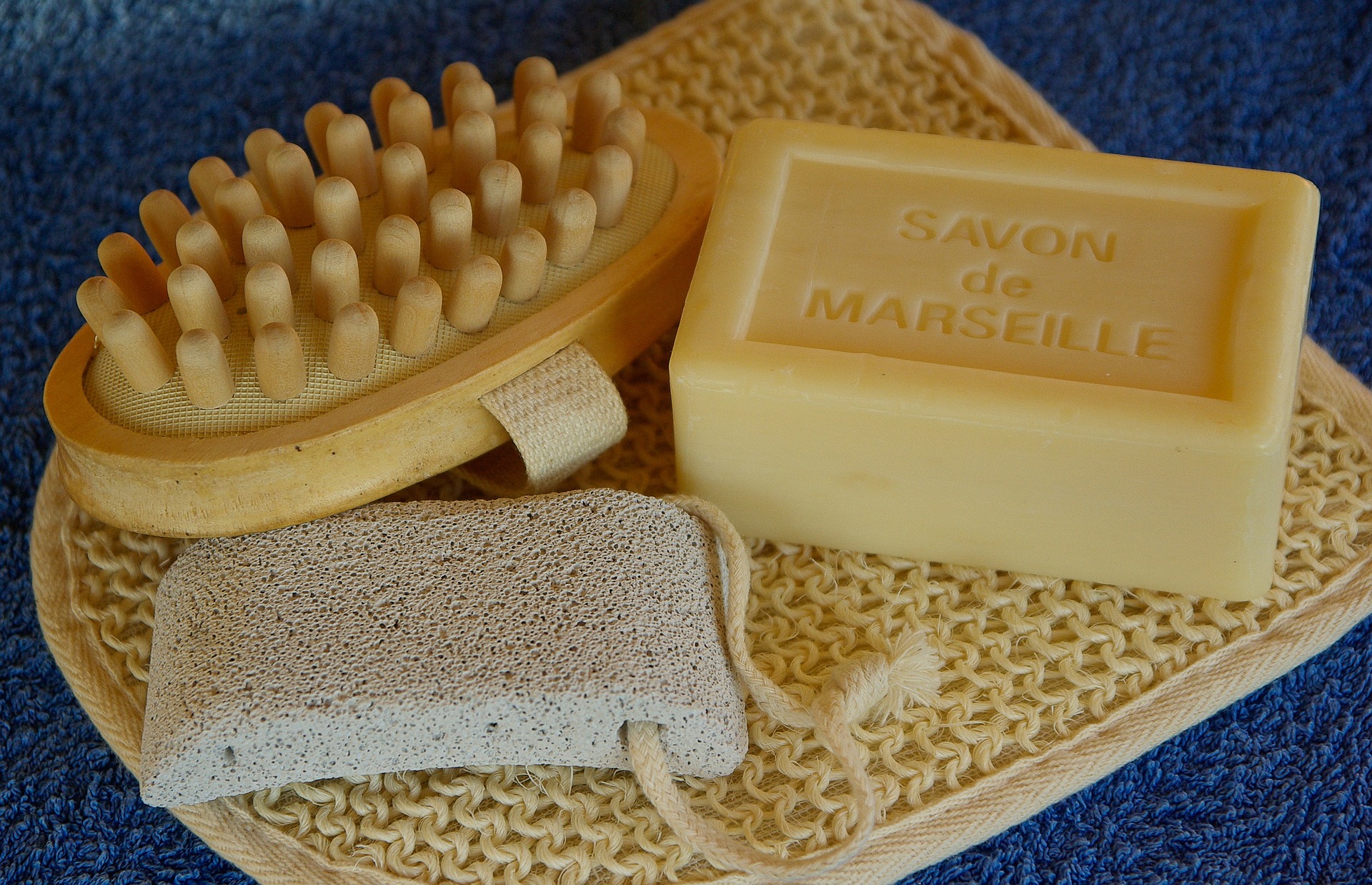Marseille soap is a simple yet great ally for household cleaning – but that’s not all. In fact, we can use it in many ways. In addition to be a quality product, it is also natural, cheap and sustainable. So let’s discover all the secrets behind this amazing product.
The History of Marseille Soap
In the early twentieth century, people used Marseille soap and homemade soap with animal fats that came from home slaughtering (especially pigs). Then, with the economic boom of the fifties and sixties, the way of washing clothes changed radically thanks to the washing machine. But with it also began the large-scale production of washing machine detergent. As a result, the use of homemade soaps decreased.
Over the years, the increasing use of detergents has caused considerable environmental damage. This is why the chemical industry had to find a solution by developing biodegradable products. For some years now, moreover, people have started using natural, non-polluting products again.
To make sure you are using a truly ecological product, it is important to know how to recognize the real Marseille soap. Real Marseille soap is natural, it has no preservatives or additives. It must also contain a high concentration (at least 72%) of vegetable oils. The original recipe involves the use of extra virgin olive oil mixed, in well-defined proportions, with sea water, sodium carbonate and soda (sodium hydroxide).
Original Marseille soap must contain only Sodium Olivate and Sodium Hydroxide – i.e. olive oil and soda. Many soaps, passed off as the original ones, actually contain other ingredients in addition to olive oil and caustic soda. In particular, they may contain:
- Less valuable vegetable oils, such as peanut, palm or coconut oil;
- Fats of animal origin, such as Sodium Tallowate or beef tallow. It is a saponified fat obtained from slaughter waste. It is found in almost all face and body soaps as well as in all laundry soaps.
The Most Common Uses
Marseille soap is mainly used for washing clothes. However, it has many properties that can also be useful and valuable for personal hygiene and household cleaning.
First of all, it is a natural antiseptic, i.e. it prevents the onset of infections caused by germs. Secondly, it is a repellent against parasites of humans, plants and animals. Furthermore, it is an emollient for the skin, since it makes it soft and fragrant. In addition, it is hypoallergenic, so it is suitable for children, those suffering from acne or eczema, those with oily skin. Thanks to its properties it is also perfect for removing unpleasant odours. Finally, it is also excellent as shampoo, toothpaste or shaving foam.

